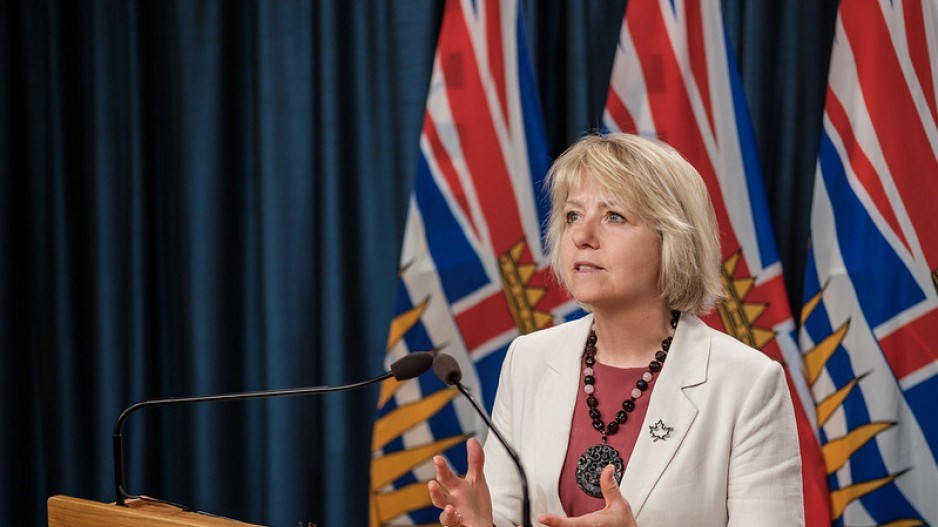British Columbians' efforts to wrestle down the number of new COVID-19 infections and deaths continue with data released July 2 showing 24 new cases and three deaths in the province.
B.C. provincial health officer Bonnie Henry said the BC Centre for Disease Control confirmed 15 new infections between June 30 and July 1, and a further nine new infections between July 1 and July 2.
That means a total of 2,940 B.C. residents have become infected since the virus that spawned a global pandemic first arrived in B.C. in late January. Of those, 177 people have died, 2,603 people have recovered and 160 people are still battling the disease. While most people are self-isolating at home, 17 people are in hospital, with two of those in intensive care units.
The breakdown of all COVID-19 infections by health region is:
• 989 in Vancouver Coastal Health;
• 1,553 in Fraser Health;
• 132 in Island Health;
• 201 in Interior Health; and
• 65 in Northern Health.
There have been 626 cases so far that have involved seniors' care homes, including 390 residents and 230 staff.
The four long-term care facilities with active outbreaks are:
• Abbotsford's Tabor long-term care home;
• Langley's Maple Hill long-term care home;
• Vancouver's Holy Family Hospital; and
• Langley's Langley Lodge.
There is also an outbreak at Mission Memorial Hospital, which spawned the outbreaks at Tabor and at Maple Hill, when infected patients were transferred to those homes from the hospital.
"The Mission Hospital one is a complicated cluster," Henry told media on July 2.
"[The infected patients] were the only people who were transferred and both of them became sick once they were at the long-term care home, and it was traced back to their exposure being both at Mission Hospital. So there are now additional cases that have been uncovered as the investigation happened at the Mission Hospital. So it wasn't healthcare workers moving between the hospital and long-term care, it was patients who were transferred and then recognized to have been exposed at the Mission Hospital. We now have additional cases in both patients at the hospital and healthcare workers."
She added that she thinks that the infections in the two patients who were transferred to care homes is linked back to a previous long-term care outbreak, but that an investigation into that theory is ongoing.
Henry said that while B.C. is now in the provincial government's Phase 3 of restarting the economy – a phase that encourages travel within the province, there are still restrictions on those who plan to enter B.C.
She encouraged visitors to keep their "bubble," or travelling unit small, wear masks when indoors or on transit and to stay home if feeling unwell.
The U.S. border is closed to non-essential travel until July 21, and non-essential travel from other parts of the world is banned until July 31.
The federal government has also extended a requirement to August 31 that all non-essential visitors to Canada, and Canadian citizens who have been abroad, quarantine for two weeks when they arrive in Canada. The maximum penalty for not quarantining on a non-essential visit to Canada is $750,000. That penalty could rise as high as $1 million if the person who breaks the quarantine causes death or bodily harm in others as a result.



